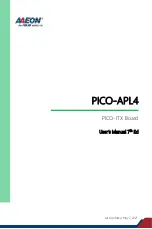
If a command causes the firmware to access any unused address (i.e. no memory or I/O
device is located at that address), a bus trap error will occur. The contents of all CPU
registers are displayed and a return to the standard input routine is performed. This also
occurs if an attempt is made to write to a reserved memory area.
Terminal Control Characters
Several keys are used as command line edit and control functions. It is best to be famil-
iar with these functions before exercising the system. Some of these functions are termi-
nal dependent, such as:
a)
DELETE (RUBOUT) key or CTRL H - deletes the last character entered on
the terminal
b)
CTRL X - cancels the entire line
c)
CTRL D - re-displays the entire line
d)
RETURN (carriage return)-enters the command line and causes processing to begin
e)
BREAK - aborts commands that perform any console I/O and return to the input.
Command Line Format
Notation
Commands are entered in the same way as most buffer organised computer systems. A
standard input routine controls the system while the user enters a line. The DELETE
(RUBOUT) key or CTRL H deletes the last character entered. Processing begins only
after carriage return < CR> has been entered.
Many primitive commands can be altered using the options field. This provides several
extensions to the primitive commands.
Some of these commands are set/reset pairs. Instead of having separate primitive
commands, NO is added as the first two characters of the command. For example, the
set breakpoint command is BR, while the remove breakpoint command is NOBR.
PME68-1B Manual
Page 83 Issue 5
Summary of Contents for PME 68-1B
Page 8: ...Figure 1 The PME 68 1B Board Photograph not available in PDF PME 68 1B Manual Page 2 Issue 5...
Page 12: ...Figure 4 Component Layout Diagram P5 P4 P3 BAT PME 68 1B Manual Page 6 Issue 5...
Page 56: ...Figure 14 Link Areas BAT PME68 1B Manual Page 50 Issue 5...










































